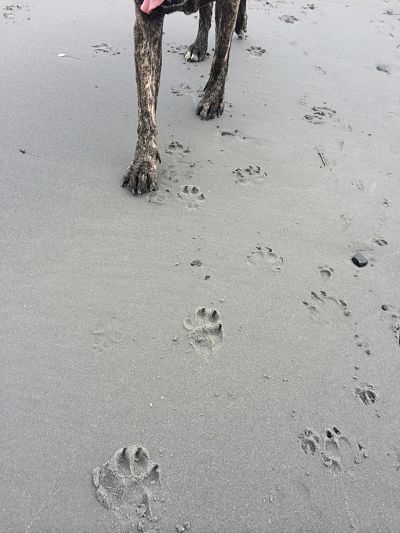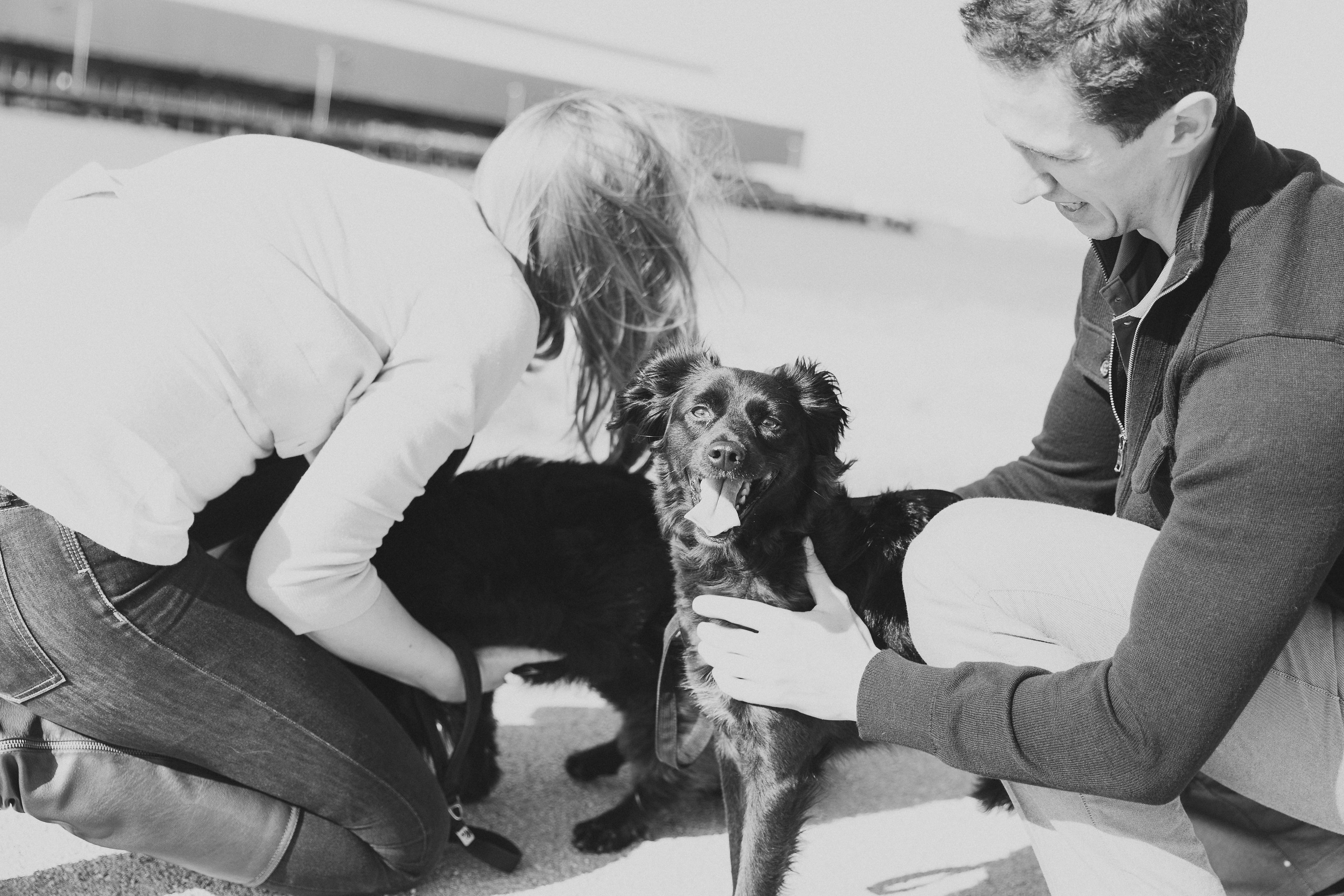He dealt.
I lost.
I dealt.
I lost.
I kept losing.
I rubbed my feet on Gizelle’s extra neck skin, and she nibbled my toes. “I keep losing, Gizelle!” The light from the little lamps and the yellow walls created a comforting glow. I peeked out the window at the wintry darkness that was creeping over our temporary little corner of the world. The outline of bare branches silhouetted against the black sky and the remaining leaves shivered in the wind. Deep down, I knew that if Gizelle saw the winter, she wouldn’t see spring.
We sat at the card table for a few hours, and soon the conversation turned to Mom. There weren’t many people I spoke to about Mom. I was embarrassed: My mom was a drug addict.
“I’m mad at her,” I told Dad. I looked around the little beachy white cottage and thought how much my mother would love being here if she were sober. “She’s missing everything. She’s missing her whole life. It’s so sad.” I stared at my cards, bitter about all of the years I’d spent picking up my mother’s messes, when I was the one who still needed a mother myself.
I thought about the day I’d gotten Gizelle. Even though my mother was struggling with addiction at that point, we were still best friends. She was still there for me. And now Gizelle was reaching the end of her life, and for the past six years, my mom’s addiction had gotten progressively worse until one day I’d woken up and realized we weren’t close anymore. Mom had missed family reunions and weddings, a friend’s funeral, Mother’s Days, Thanksgivings, Christmases, her birthdays, our birthdays. She wasn’t there and often if she was, she wasn’t sober. Sometimes she’d just offer to send money or a gift to us in an attempt to still be supportive, and while that was generous of her, it wasn’t a substitute for having her around. I’d much prefer having her around. I wondered if she would be at my wedding, or see me have kids. I didn’t understand why she couldn’t just get her act together.
Dad was less openly emotional when it came to Mom. He always listened if we needed to talk about her, and I’d never once heard him say anything bad about her, despite her always talking bad about him. I knew he thought we shouldn’t play the pity card, that we shouldn’t be victims, and that we should be strong and grateful for the things we had. But that night Dad responded.
“Does it help you to see Mom like she has a disease?” he said, staring down at his cards. “You know — maybe a little like the one Gizelle has?”
“Does it help you to see Mom like she has a disease?” he said, staring down at his cards. “You know — maybe a little like the one Gizelle has?”
It certainly wasn’t the first time I’d heard addiction referred to as a disease. But it was always hard to see my mom as truly sick. Over the years I’d watched her struggle in countless ways — through rehab, DUIs, broken promises, jail, halfway houses, therapy, doctors, AA meetings — but the addiction had always won. I’d heard all the promises — “I’m better! I’m fine! I’m going to meetings! I’m going to visit you! I’m going to teach aerobics again! I’m going to volunteer at the animal shelter! I’m going to move to California! I’m going to visit you! I’m going to visit you and Gizelle!” But she never did any of these things. I never believed her anymore. It was too hard to have a relationship with someone who seemed to lie about absolutely everything.
But what if, deep down, she wanted all of those things to be true but just couldn’t figure out a way to make them true? What if she really was sick, lost in her own mind and unable to get out? What if drug addiction wasn’t embarrassing at all? What if I could try to see the struggles my mom was facing and rather than add to them, try to see her with empathy and compassion — the way we view people who are plagued with sicknesses? On one level addiction is so self-indulgent, so it’s tough to see it as a disease, but I also know it takes more than willpower for people who struggle with it to get better.
It made sense that Mom was sick. Like cancer, addiction had side effects, side effects that morphed her body into someone unrecognizable and prevented her from acting normally. Like cancer, it was confusing to understand and heartbreaking to watch. Like cancer, some got better. Some didn’t. Like cancer, maybe it was okay to just be sad about it. Maybe it was okay to accept that there was nothing I could do to change it.
Many people argue addiction isn’t a disease, that it’s a choice. Even some alcoholics say they don’t want to be called someone with a disease. But I think that if addiction were a choice, my mom would be better by now. I don’t think my mom wants to keep picking the drugs and the alcohol over me. I think she is lost within the depths of her own struggle and can’t get out.
Dad told me that he thought addiction was a little bit like being lost in a maze, and if I tried to fix Mom, I would only end up lost in the maze with her. And as much as I wanted to cure my mother, to fix the problem, there was a sense of relief to be found in letting go, accepting that I didn’t have to.
I couldn’t change that Gizelle was sick, and I couldn’t change that Mom was sick, any more than I could change that the leaves were turning and falling from the trees. And maybe doing absolutely nothing about my mom’s addiction was actually doing everything, because it was letting myself out of her maze so I could move on and be grateful for the wonderful things that did exist in the world — lighthouses, pumpkin patches in the fall, seagulls at the beach, a mastiff snoozing across my feet, card games with Dad in Maine.
I couldn’t change that Gizelle was sick, and I couldn’t change that Mom was sick, any more than I could change that the leaves were turning and falling from the trees. And maybe doing absolutely nothing about my mom’s addiction was actually doing everything, because it was letting myself out of her maze so I could move on and be grateful for the wonderful things that did exist in the world — lighthouses, pumpkin patches in the fall, seagulls at the beach, a mastiff snoozing across my feet, card games with Dad in Maine.
That was the whole point of my dog’s bucket list, right? I couldn’t change Gizelle’s cancer. I would never cure Gizelle’s cancer. I could only change my attitude toward Gizelle’s cancer; it could either bring me down or become my excuse to live life fully with Gizelle while I could.
To learn more, find Lauren here.

Do you have a story like Lauren’s? Please share as a comment below or submit a full story.

Comment